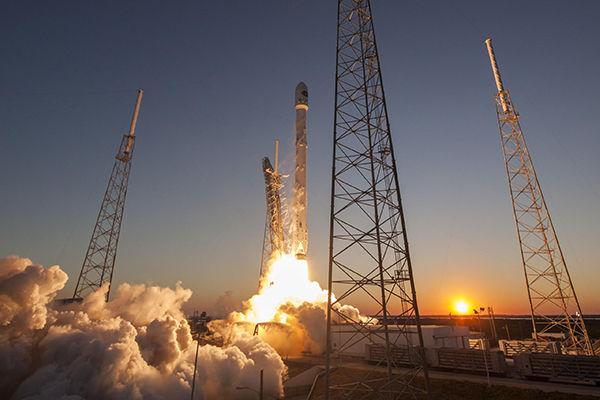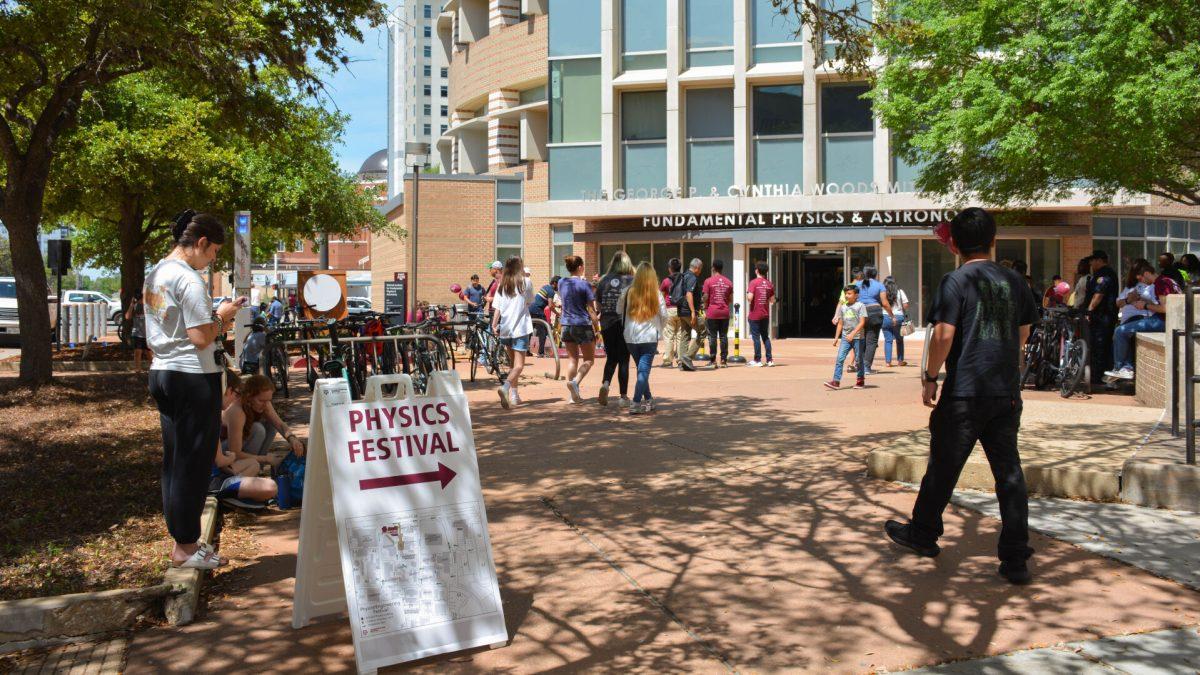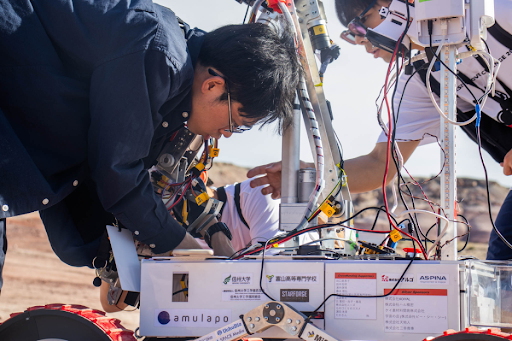The future of spaceflight might include reusable rocket components, if a private company’s engineering gamble pays off.
Space Exploration Technologies, or SpaceX, hopes to develop a way to land and refurbish a rocket’s first launch stage. A January attempt came close to success, but a planned second attempt last Wednesday was scrubbed due to bad weather. Industry experts say the technology could make space operations much more affordable and would boost space operations, if the capability is proven.
January’s attempt saw SpaceX’s signature Falcon 9 rocket successfully deliver supplies to the International Space Station while its first stage attempt to land on a remote-controlled ocean barge. The rocket maneuvered itself to the target but crashed when it ran out of hydraulic fluid.
David Kanipe, aerospace professor of engineering practice, worked at NASA for 38 years before coming to A&M. He said the test showcased SpaceX’s ability to innovate and react quickly as a company despite failure — two important traits in the space industry.
“Beyond the accident, what struck me about it was that commercial companies are really able to be pretty nimble when it comes to things like this,” David Kanipe said. “They can recover and turn things around a lot faster than the government can. I worked at NASA for 38 years so I have seen a lot of this kind of thing. It is refreshing to know that they can come back pretty quickly.”
Dianne Kanipe, engineering student enhancement specialist, considers January’s test to be a success in its own right.
“I do not see it as a failure,” Dianne Kanipe said. “The fact that they came from orbit and hit that spot, the little bitty spot in the ocean, and almost had it oriented right, is something. The success of what [SpaceX] accomplished was phenomenal. That is why you test these things. You find out what doesn’t work right and what does. What worked right was tremendous and now they just tweak it a little bit. “
Last Wednesday’s planned test was cancelled because storm weather in the ocean barge’s area made it difficult to handle. The next full landing attempt will not likely come until April, according to spaceflightnow.com.
If the technology is proven, it could result in cheaper and greater access to space, said Charles Hermann, professor of international affairs.
“Putting any kind of payload in space, including human beings and everything else, it takes, normally, a multistage rocket,” Hermann said. “Only the top section usually actually goes into space, and the rest falls back to earth. So the idea is to try and recover the giant early stages of rockets and to be able to make repairs on them and refit them and use them repeatedly. Which could reduce significantly the cost of putting things into space.”
This is why SpaceX hopes to change the way the space industry thinks about a rocket’s life span, Hermann said.
“The idea is the United States is trying to prod and encourage more private sector companies, like SpaceX, to get involved in getting our material into space,” Hermann said. “And for them to be economically successful, they are going to need to be able to reuse the bottom stages of the rockets, and that is what all of this effort is about.”
SpaceX is owned and operated by Elon Musk. SpaceX has been involved in a number of space experiments in order to cut the cost of space travel, Kanipe said.
“What Elon Musk does really well is innovate, and that encourages competition because the other companies don’t want to be left behind,” David Kanipe said. “You get a cycle of improvement and other companies have to pick it up. They can’t be left behind.”
Reduce, reuse, lift off again: New technology could make space travel more affordable
February 15, 2015

PROVIDED
0
Donate to The Battalion
$1765
$5000
Contributed
Our Goal
Your donation will support the student journalists of Texas A&M University - College Station. Your contribution will allow us to purchase equipment and cover our annual website hosting costs, in addition to paying freelance staffers for their work, travel costs for coverage and more!
More to Discover









